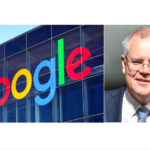Should Social Media Companies Be Responsible for Spreading Lies?

Technology companies such as Alphabet, the owner of Google, and Meta, the owner of Facebook, have had a good run in Australia in recent years, with the Supreme Court reversing a previous decision which meant these social media giants could be sued for defamation over content posted by their users and the Australian government backflipping on legislation which would have made social media companies pay for news content.
Now Elon Musk, the owner of X (formerly known as Twitter) has labelled the Australian government ‘fascists’ over a proposal to make social media companies liable for misinformation and disinformation spread by users.
Free Speech vs Dangers of Spreading Lies
Free speech absolutists believe any form of censorship is unjustified, as it curtails fundamental freedoms, which is ultimately harmful to a healthy democracy. These people are generally of the view it is incumbent on individuals to decipher falsehoods from the truth, and any degree of censorship causes greater social harm than any damage that might be caused by spreading untruths.
Those in favour of some degree of censorship disagree – asserting that the harms caused by the deliberate spreading of misinformation (inaccurate or false information without a particular agenda) and disinformation (aimed at pushing a particular social or political agenda) can greatly outweigh any damage caused by the limited impeding of free speech.
They point to numerous instances whereby the spread of false narratives has caused individuals to be targeted and even killed, undermined the integrity of democratic elections and even caused social upheaval and the widespread loss of lives.
Communications Minister Michelle Rowland says ‘misinformation and disinformation threaten the safety and wellbeing of Australians’, asserting that it rather than unfettered free speech poses the greatest threat to democratic principles.
Most of us see the need for a balance incorporating a level of checks and balances such as laws against hate speech and defamation, and some degree of responsibility being placed on those who intentionally spread harmful untruths, including those knowingly enable or facilitate its spread.
It is in the context that the Australian government proposes to introduce laws which place some degree of financial accountability on social media companies.
The Government Proposal
The Communications Legislation Amendment (Combating Misinformation and Disinformation) Bill 2024 proposes to grant Australia’s media watchdog, the Australian Communications and Media Authority (ACMA) greater information-gathering powers as well as powers to require sufficient record keeping, and to adopt industry codes and standards.
Industry codes, which are currently voluntary and unenforceable, includes rules against the spreading of misinformation and disinformation, hate speech and other potentially harmful content.
Under the proposed new laws, companies that fall foul of the codes could be fined up to 5% of global revenue, which for companies such as Meta and X could amount to many millions of dollars.
Heated Debate
Elon Musk has responded to internet posts regarding the proposal with a one-word response: “Fascist”.
And while Mr Musk likes to present himself as a free speech absolutist, greatly reducing the level of moderation on X, it is notable the platform has been caught out deleting both posts and accounts which are directly critical of Musk and his companies, as well as views with which he does not personally agree.
Such conduct is consistent with Federal Minister Bill Shorten’s remark that the multi-billionaire only advocates free speech when it benefits his business interests. “When he didn’t like it, he shut everything down,” he told Channel Nine on Friday.
Financial adviser Stephen Jones has also weighed into the debate, calling his remark “absurd.” Mr Jones says the government’s new bill is a matter of “ponderance”.
“As the Australian government and other governments around the world, we will protect our right to pass laws to keep Australians safe – from fraudsters and criminals. For my life, I don’t know how Elon Musk, or anyone else, thinks it’s okay, in the name of free speech, for social media platforms to post false information that discredits the billions of Australian dollars per year”, Mr Jones told the ABC.
Self-Regulation
Australian laws give media companies, including social media companies, the right to monitor and control content on their own digital media platforms.
However, they do require the adoption of standards for social media companies if self-regulation is deemed to have failed.
Elon at it Again
This is not the first time Musk has clashed with the Australian government.
In April 2024, the Electronic Safety Commission ordered X to remove graphic material after footage of a stabbing in Sydney was visible on the platform. Mr Musk say this directions as an attempt to stifle free speech, despite his own aforementioned conduct relating to accounts and posts he does not like.
A number of politicians hit back at the time, with Prime Minister Anthony Albanese calling him an “arrogant billionaire”.
In June 2024, the Electronic Security Commissioner stopped Musk’s proceedings in the Federal Court. The Administrative Appeals Tribunal’s independent review of the notice issued to X will take place in October.
Legal Defence to Censorship
Local, federal, state, and territory governments control the censorship of publications, films, and media. Due to the different levels of power, various laws have emerged. These have changed drastically over the past decades as new technologies and information methods, such as social media, have become prevalent in society.
Censorship often refers to material that threatens national security, defamation, and the federal Racial Discrimination Act of 1975. Other types of censorship are also established by lesser-known entities, such as internet service providers, universities, and self-regulating bodies.
Understanding your legal rights regarding censorship is not just important, it’s empowering. It’s essential to understanding your freedom of speech limitations in Australia, the type of content you can consume, and how future censorship laws can affect where you find your information.
No Right to Free Speech in Australia
It is important to acknowledge that Mr Musk’s comments, although somewhat hypocritical, have some validity in so far as Australia being the only developed ‘Western’ nation in the world not to have a national Bill or Charter of Rights.
In fact, our constitution expressly guarantees just five rights, which are:
- The right to vote (Section 41),
- Protection against acquisition of property on unjust terms (Section 51 (xxxi)),
- The right to a trial by jury for criminal cases in the higher courts (Section 80),
- Freedom of religion (Section 116), and
- Prohibition of discrimination on the basis of State of residency (Section 117).
The High Court has also implied a freedom of political communication into the constitution, which is necessary in a democracy in order for a citizen to:
“communicate his or her views… criticize government decisions and actions, seek to bring about change, call for action where none has been taken and in this way influence the elected representatives…”
The Court added that:
“Absent such a freedom of communication, representative government would fail to achieve its purpose, namely, government by the people through their elected representatives.”
However, the Court also made clear that the freedom is not unfettered. Rather, the applicable test was set out in the case of Lange v Australian Broadcasting Corporation (1997), in which the justices ruled that legislation is permissible if it satisfies a legitimate purpose and fulfils two conditions:
- It is compatible with the maintenance of the representative and responsible government mandated by the Constitution, and
- It is “reasonably appropriate and adapted” to the fulfilment of a legitimate purpose.
This significant restriction on the ‘freedom’ has enabled governments to pass laws which restrict free political speech.
Social Media Codes are in Place
Our nation also has codes in place against social media platforms and online news sources that regulate the content they are able to publish.
These codes prohibit hate speech, defamatory content, cyber bullying and other types content which can harm individuals or the community.
However, these codes are not legally binding and breaches are therefore not legally enforceable by way of sanctions.
The Australian Communications and Media Authority (ACMA) says that if self-regulation continues to result in harmful content being disseminated, a legally binding industry code should be brought in to stop the spread of misinformation, disinformation and other potentially harmful publications.
And while the Online Safety Act of 2021 does contain some penalties when it comes to the failure to remove offensive, threatening, or abusive information when directed to do so, many feel it does not go far enough – especially given the limited resources available to the Commissioner when it comes to policing such content.
Censorship Defence
Individuals fighting for their freedom of speech and against censorship in the media, online, or in person need to understand the ‘right to freedom of opinion and expression.’ This allows individuals to hold opinions without any interference and extends to any medium, including both oral and written communications. However, Australian law does state that this right can be ‘restricted on several grounds’.
The right to freedom of opinion and expression is guaranteed by the International Covenant on Civil and Political Rights, the Convention on the Elimination of All Forms of Racial Discrimination, and the Convention on the Rights of Persons with Disabilities.
Individuals need to understand their right to freedom of opinion and expression when they are forming a new policy or procedure that includes the following:
- Regulates the content of speech,
- Regulates the format of expression,
- Restricts media coverage,
- Requires material to be approved before publication,
- Includes liability to the publication of opinions,
- Regulates access to information,
- Imposes censorship for entertainment content, or
- Regulates commercial expression.
Freedom of speech does not extend to every person in Australia. The right detailed in Article 19(2) states that freedom of expression extends to media and broadcasting, while the rights detailed in Article 19(1) detail freedom of speech without restriction.
Can the Government Restrict my Freedom of Speech?
In what scenarios would your right to freedom of speech and opinion be regulated? There are certain situations where the government or another entity could limit your freedom of speech or opinion.
Limitation
Article 19(3) states that freedom of expression could be limited due to national security, public order, or public health regulations. Depending on the desired purpose, limitations could be prescribed on a case-by-case basis.
Derogation
Article 4 of the ICCPR states that countries can restrict freedom of opinion and expression in a public emergency that threatens the nation. Measures can only be taken during ‘exigencies of the situation’, provided that other matters, such as religion, societal rules, language, sex, etc, do not fuel these regulations.
Reputations of Others
Another instance that can limit freedom of speech is when it could damage the respect and reputations of others, as seen in the UN Human Rights Committee case disproving the denial of the Holocaust.
National Security
The last instance in which a person’s freedom of speech could be legally limited is if it threatens national security and contains ‘official secrets’ that could directly affect the security of the nation.






